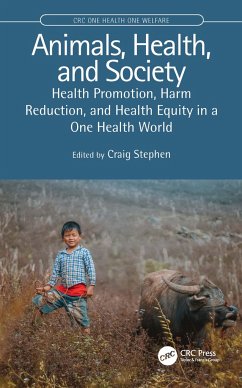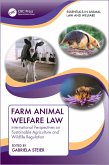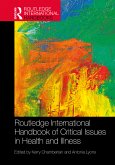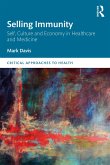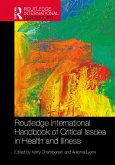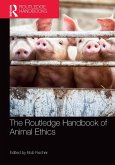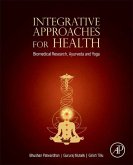CHOICE Recommended title 2022
This timely book reframes the historic narrative of people, animals, and nature as risks to each other, to one where we think about health as a shared capacity. This new narrative promotes the positive contributions made to health across species and generations and addresses growing calls to shift from a reactive to proactive approach in One Health.
Editor Craig Stephen takes the reader on a tour of the situations wherein we can all, regardless of our job description, work across species, sectors, and generations to motivate action. Perspectives and methods from a variety of fields and experts are shared and adapted to promote collaborative understanding of and action on determinants of health at the animal-society interface. Case studies demonstrate that the principles and practices presented are feasible, empowering people to make choices that concurrently benefit the health of animals, societies, and ecosystems.
The first book to adapt and explain health promotion, harm reduction, and health equity issues in a One Health context, and in terms of animal health, this is necessary reading for students of and practitioners working in planetary health, conservation, ecohealth, public health, health promotion, veterinary medicine, and animal welfare.
This timely book reframes the historic narrative of people, animals, and nature as risks to each other, to one where we think about health as a shared capacity. This new narrative promotes the positive contributions made to health across species and generations and addresses growing calls to shift from a reactive to proactive approach in One Health.
Editor Craig Stephen takes the reader on a tour of the situations wherein we can all, regardless of our job description, work across species, sectors, and generations to motivate action. Perspectives and methods from a variety of fields and experts are shared and adapted to promote collaborative understanding of and action on determinants of health at the animal-society interface. Case studies demonstrate that the principles and practices presented are feasible, empowering people to make choices that concurrently benefit the health of animals, societies, and ecosystems.
The first book to adapt and explain health promotion, harm reduction, and health equity issues in a One Health context, and in terms of animal health, this is necessary reading for students of and practitioners working in planetary health, conservation, ecohealth, public health, health promotion, veterinary medicine, and animal welfare.
"Animals, Health and Society is the perfect book for this moment in time-one of those rare moments when we have an opportunity to collectively and collaboratively reframe destruction into creative destruction and reorganization. Where some see only ends, these authors would have us consider beginnings. This book should be required reading for any aspiring physicians, veterinarians, natural resource managers and public health workers."
-- David Waltner-Toews BSc DVM PhD, Professor Emeritus of Population Medicine, University of Guelph
"Dr. Craig Stephen's Animals, Health and Society is a must read for anyone interested in One Health - which should be all of us. Instead of dwelling on the doom of climate change, the book is a call to action by outlining both the theoretical and practical approaches to improve our health, the health of animals, and the health of the world around us; and how the connection between the three will move us forward. The book outlines how One Health thinking is capable of solving a complex range of problems such as living with city rats, antimicrobial resistance, and the St. Kitts "monkey problem", among many others. Readers are guided through complex issues of climate change, human equity, and cultural considerations and are given practical tips on affecting real change in our world."
-- Alexandra Protopopova, NSERC/BC SPCA Industrial Research Chair in Animal Welfare and Assistant Professor, Animal Welfare Program, The University of British Columbia
"I don't know which is more important: (1) The need for everyone to appreciate and understand that humans, animals, and the environment are inextricably interconnected, (2) The need to act upon that reality, with energy and newfound hope, or (3) The superbly organized, well-written, and useful material contained in this much-needed book, which provides the tools needed to accomplish (1) and (2). Of course, they're all important! The publisher, the contributors, and Dr. Craig Stephen are to be congratulated for putting together a crucial tool for understanding our predicament - which we share with all the planet's inhabitants - and for showing us a way forward, a monumental accomplishment that should be read and consulted by veterinarians, physicians, environmentalists, politicians, and in fact, everyone!"
-- David P. Barash, Professor of Psychology Emeritus, University of Washington and author, most recently, of Threats: Intimidation and its Discontents (Oxford University Press).
"This book tackles the core concepts of One Health to address the complex problems through a mix of theory and concreate case examples. The author (with his long track record of peer-reviewed publications and textbook contributions) clearly outlines his intended purpose and objectives, the way it can be done with already existing frameworks and theories that bring together a more equitable and holistic approach. The book is a significant contribution to the field because of the perspective it takes, while also targetting those in next generation, mostly in undergraduate, graduate, professional, or early career allied health fields or policy to empower them to think more holistically and systematically about collaborative enterprises. The book is most successful in how it lays out its argument, the core principles behind it, and the concrete and specific examples to demonstrate One Health approaches."
--William E Sander, Assistant Professor, University of Illinois College of Veterinary Medicine and Director DVM/MPH (Doody Review Service)
-- David Waltner-Toews BSc DVM PhD, Professor Emeritus of Population Medicine, University of Guelph
"Dr. Craig Stephen's Animals, Health and Society is a must read for anyone interested in One Health - which should be all of us. Instead of dwelling on the doom of climate change, the book is a call to action by outlining both the theoretical and practical approaches to improve our health, the health of animals, and the health of the world around us; and how the connection between the three will move us forward. The book outlines how One Health thinking is capable of solving a complex range of problems such as living with city rats, antimicrobial resistance, and the St. Kitts "monkey problem", among many others. Readers are guided through complex issues of climate change, human equity, and cultural considerations and are given practical tips on affecting real change in our world."
-- Alexandra Protopopova, NSERC/BC SPCA Industrial Research Chair in Animal Welfare and Assistant Professor, Animal Welfare Program, The University of British Columbia
"I don't know which is more important: (1) The need for everyone to appreciate and understand that humans, animals, and the environment are inextricably interconnected, (2) The need to act upon that reality, with energy and newfound hope, or (3) The superbly organized, well-written, and useful material contained in this much-needed book, which provides the tools needed to accomplish (1) and (2). Of course, they're all important! The publisher, the contributors, and Dr. Craig Stephen are to be congratulated for putting together a crucial tool for understanding our predicament - which we share with all the planet's inhabitants - and for showing us a way forward, a monumental accomplishment that should be read and consulted by veterinarians, physicians, environmentalists, politicians, and in fact, everyone!"
-- David P. Barash, Professor of Psychology Emeritus, University of Washington and author, most recently, of Threats: Intimidation and its Discontents (Oxford University Press).
"This book tackles the core concepts of One Health to address the complex problems through a mix of theory and concreate case examples. The author (with his long track record of peer-reviewed publications and textbook contributions) clearly outlines his intended purpose and objectives, the way it can be done with already existing frameworks and theories that bring together a more equitable and holistic approach. The book is a significant contribution to the field because of the perspective it takes, while also targetting those in next generation, mostly in undergraduate, graduate, professional, or early career allied health fields or policy to empower them to think more holistically and systematically about collaborative enterprises. The book is most successful in how it lays out its argument, the core principles behind it, and the concrete and specific examples to demonstrate One Health approaches."
--William E Sander, Assistant Professor, University of Illinois College of Veterinary Medicine and Director DVM/MPH (Doody Review Service)

